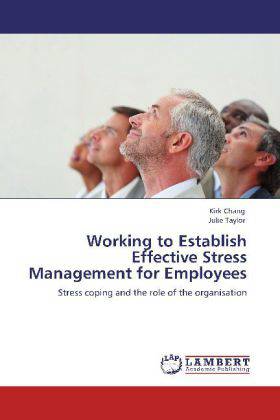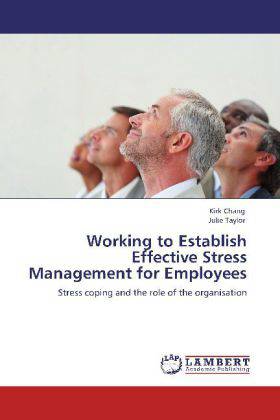
- Afhalen na 1 uur in een winkel met voorraad
- Gratis thuislevering in België vanaf € 30
- Ruim aanbod met 7 miljoen producten
- Afhalen na 1 uur in een winkel met voorraad
- Gratis thuislevering in België vanaf € 30
- Ruim aanbod met 7 miljoen producten
Zoeken
Working to Establish Effective Stress Management for Employees
Stress coping and the role of the organisation
Kirk Chang, Julie Taylor
Paperback | Engels
€ 48,45
+ 96 punten
Omschrijving
This book investigates the efficacy of coping strategies commonly used in the workplace to alleviate stress. It presents findings from a research study; a study that sought to build upon and synthesise the plethora of workplace stress research available. The primary goal is to discuss the study and the implications it has for managers and employers in terms of organisational stress management initiatives. The book is presented to the reader in the form of a research paper so that the reader can follow the research process from inception to praxis. The research implications, suggest that organisations would benefit from acknowledging workplace stress and actively promoting organisational group stress reduction initiatives. The research also found that group initiatives alone, may be insufficient to enhance well being, but, when paired with self assistance strategies, a marked positive impact on the stress experience was observed. Furthermore, organisations who fail to recognise stress in the workplace or who adopt passive stress response strategies are perhaps inadvertently encouraging employees to adopt the least effective coping strategy observed in this research, 'avoidance'.
Specificaties
Betrokkenen
- Auteur(s):
- Uitgeverij:
Inhoud
- Aantal bladzijden:
- 84
- Taal:
- Engels
Eigenschappen
- Productcode (EAN):
- 9783848497300
- Verschijningsdatum:
- 27/04/2012
- Uitvoering:
- Paperback
- Formaat:
- Trade paperback (VS)
- Afmetingen:
- 152 mm x 229 mm
- Gewicht:
- 136 g

Alleen bij Standaard Boekhandel
+ 96 punten op je klantenkaart van Standaard Boekhandel
Beoordelingen
We publiceren alleen reviews die voldoen aan de voorwaarden voor reviews. Bekijk onze voorwaarden voor reviews.











